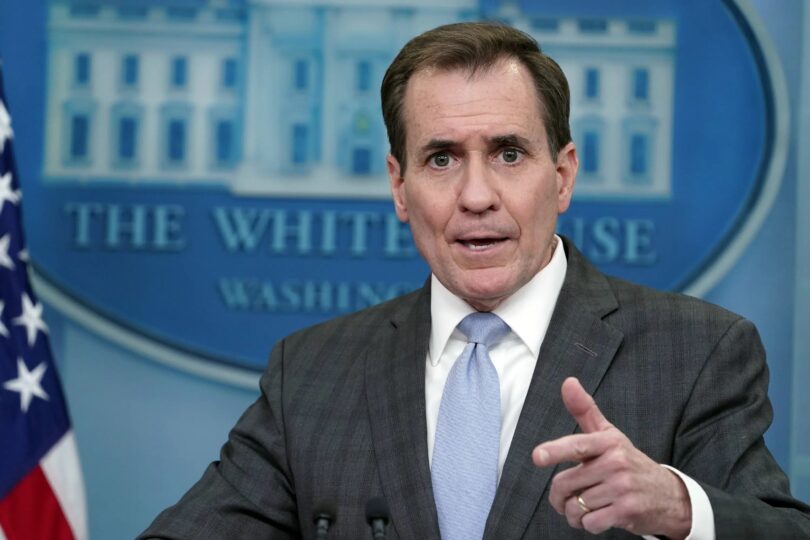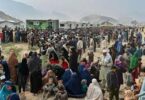The White House, National Security Council’s Spokesperson, John F. Kirby has observed that the United States wants to see Pakistan as a successful and stable country, and the Pakistani government should live up to the strongest aspiration of the nation. While responding to a media query put forth by the Frontier Post Correspondent, Mr. Kirby admitted that Pakistan is facing serious challenges relating to terrorism, and political and economic issues, however, the South Asian Nation will always find the US as a good friend.
There had been multiple calls from the United States government and its executive organs including the White House, the State Department, and Pentagon regarding Pak-US ties and historic partnerships during the cold war and US-led War on Terror (WoT) in the early 21st century. American Spokesmen commonly express good aspirations for Pakistan and persistently advocate for stronger Pak-US cooperation in the coming era. In fact, diplomacy is the work of hopefulness, maintaining optimism, and creating bonds in the best interests of their nations. The reality is somewhat bitter and embarrassing for a 225 million-strong South Asian nation that joined the US bloc in the early months of its independence and experienced a recurrent breakage of ties and reunions with its powerful Western ally over the past seven and a half decades.
Currently, Pak-US relations are suffering a brief impasse and uncertainty, because the Biden administration sought Pakistan’s assistance in the US’s over-the-horizon Counter Terrorism campaign in Afghanistan along with military basing on Pakistan’s soil that was refused by Islamabad. Meanwhile, Islamabad’s long-term association with Beijing and an ever-booming Pak-China strategic friendship are being viewed as hurdles by the US administration, which intend to contain China and work actively to enhance Washington’s influence in the broader Indo-Pacific region. Realistically, global diplomacy revolves around the interests of the states by means of bilateral and multilateral accords, alliances, and partnerships between nations. The Pakistani nation has suffered the utmost because of irrational policies and insane decisions of its past rulers as the US-Pakistan relations had always been of a transactional nature and successive US administrations recurrently used coercive measures to influence Pakistan’s foreign and security policies. American pressure and coercion fractured the bilateral relations between the two nations and caused doubts regarding each other.
At this point in time, the entire world has been shaped into two blocs and a majority of the nations clearly defined their foreign policy priorities. Apparently, every nation has a sovereign right to chase its national manifesto, however, security issues, economic stability, as well as a geopolitical matrix significantly affect the decisions of the states. Although US diplomats are well known for their paraphrasing and delicate persuasion of other nations, Pakistan believes in solid actions instead of words that speak much louder and clearer. Keeping the previous history and current dynamics of the country, region, and the globe, Pakistan has moved toward Bejing and walked away from the US bloc in recent years. Pakistan needs to look after its own interest, as Islamabad is an important partner in President Xi’s Belt and Road Initiative (BRI), whereas China Pakistan Economic Corridor (CPEC) is a jewel in the decades-long China-Pakistan all-weather friendship. Washington’s role in South and Central Asia along with the Middle East regions had been reduced in Biden’s era, as the Biden administration has been struck by domestic issues and war in Ukraine. Pakistan must transform Pak-China friendship into a comprehensive strategic partnership that encompasses all sectors of the economy including agriculture, industry, IT and Space, Education, Science and Technology, Health Defense, and Security. At the same time, all segments of society and government institutions must play their constitutional role. The Army must adopt an apolitical role and enhance the defense of the state borders, the judiciary must dispel unbiased and fearless justice and the government and bureaucracy should work for the benefit and welfare of the masses. So, a 225 million-strong nation can pull itself out of the current catastrophe and grasp a peaceful and prosperous future.







